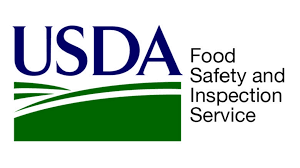Frozen ready-to-eat chicken products used for kebab meals were produced in Canada and imported to the United States back in June. Consumers are advised to discard the products or return them to the place of purchase.
Image credit: USDA

A Canadian company, Al-Safa US, has recalled imported frozen ready-to-eat chicken products that may be adulterated with Listeria monocytogenes, the US Department of Agriculture’s Food Safety and Inspection Service (FSIS) announced this past Friday.
These frozen ready-to-eat chicken products used for kebab meals were produced on June 5 in Canada and imported to the United States on June 13, and June 21.
The following specific products are subject to recall:
- 12.1-oz. cardboard box package containing “Al Safa Halal Charcoal Grilled Chicken Seekh Kebab Grilled, Minced, Chicken Patty Kebab” with “NOV 30 25” and “0605404” printed on a sticker on the outside of the package.
- 14.11-oz. cardboard box package containing “Al Safa Halal Fully Cooked Chicken Chapli Kebab Seasoned Chicken Patty” with “NOV 30 25” and “0605416” printed on a sticker on the outside of the package.
The products subject to recall bear establishment number “866” inside the Canadian mark of inspection. These items were shipped to retail locations nationwide.
FSIS discovered the problem after performing routine product testing and the results indicated the product may be contaminated with Listeria monocytogenes.
Symptoms and Treatment
Listeria in healthy people may have short-term symptoms such as a fever, headache, stiffness, and gastrointestinal discomfort, including diarrhea. However, in children, seniors, and people with weakened immune systems, this foodborne infection can be more severe and could be fatal in some cases. The infection can also cause miscarriages and stillbirths in pregnant women. For anyone who is suffering these symptoms after eating these products, they are recommended to contact a healthcare provider right away.2
In terms of treatment, for those with mild symptoms, no treatment is required, but severe or serious infections can be treated with antibiotics, according to the Mayo Clinic.3 Additionally, during pregnancy, prompt antibiotic treatment might help keep the infection from affecting the baby Mayo writes on its site.3
What You Need to Know
Al-Safa US is recalling approximately 2010 pounds of imported frozen ready-to-eat chicken products.
The recall was initiated after FSIS routine product testing indicated possible contamination with monocytogenes.
Consumers who purchased the recalled products are advised to discard them or return them to the place of purchase.
For Those Who Purchased These Products
According to FSIS, there have been no confirmed reports of adverse reactions due to consumption of these products. However, for anyone concerned about contracting listeria, they should contact a healthcare provider.
In its statement, FSIS said it was concerned that some products may be in consumers’ freezers. Consumers who have purchased these products are urged not to consume them. For anyone who bought these products, they are advised to discard them or return them to the place of purchase.
Additionally, consumers with food safety questions can call the toll-free USDA Meat and Poultry Hotline at 888-MPHotline (888-674-6854) or send a question via email to MPHotline@usda.gov. For consumers that need to report a problem with a meat, poultry, or egg product, the online Electronic Consumer Complaint Monitoring System can be accessed 24 hours a day.
References
1.Al-Safa US LLC Recalls Frozen Ready-To-Eat Chicken Products Due to Possible Listeria Contamination. FSIS Announcement. July 5, 2024. Accessed July 9, 2024.
https://www.fsis.usda.gov/recalls-alerts/al-safa-us-llc-recalls-frozen-ready-eat-chicken-products-due-possible-listeria
